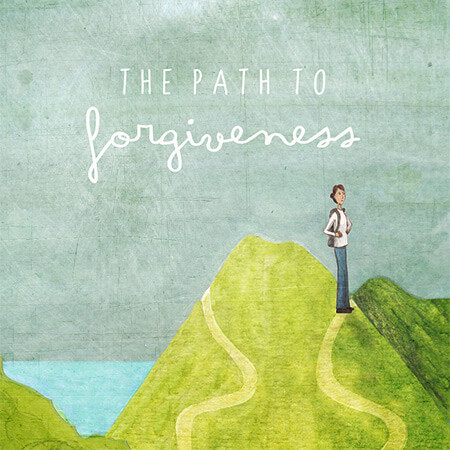
“Our stresses, anxieties, pains, and problems arise because we do not see the world, others, or even ourselves as worthy of love.”
– Prem Prekash
Many psychologists and spiritual leaders believe our culture’s most prevalent suffering comes from our feelings of unworthiness— of somehow being flawed and deficient. In my own life, I can see that feelings of not being ‘enough’ cause most of my inner struggles, as well as most of my conflicts with others. They also form my biggest creative blocks.
Psychoanalyst and Buddhist teacher Tara Brach calls this our “trance of unworthiness.” In her book, Radical Acceptance, she quotes a dying woman’s last words: “All my life I thought something was wrong with me.” This quote reveals the ultimate tragedy of not being able to fully accept ourselves.
In our modern western culture, we learn to compare and compete, but we aren’t shown how to be calm and contented.
Our feelings of inadequacy go hand in hand with our continual striving. We try to be perfect to hide our deficiencies. We define our value by how others perceive us. We continually compare ourselves to an external ideal. And we are never satisfied.
We learn early on in our families, at school and at work that our value comes from what we can contribute and how we compare to those around us. But this value is tenuous and insecure. It depends on our shallow external offerings and the fickle opinions of others. It has nothing to do with our own feelings of self-worth, which we aren’t taught to nurture.
For creators, this deficiency-mindset breeds anxious creating. We don’t want to look bad, we want to instantly be good, and we want our work to get noticed.
But creativity doesn’t work that way. We require long, slow hours of labor to become good at what we do, and even when we’re good, the chance that our work will get recognized is very slim. Our insecurities also make us distrust our abilities and criticize what we’re doing. This turns into hesitation, procrastination and, eventually, quitting.
Here’s what happens: we’re continually critical and severe with ourselves, so naturally we stop enjoying what we’re doing. When we can’t find any joy in what we’re doing, our motivation dwindles. This creates a resistance to sitting down and doing the creative work, which leads to avoiding the work, which amplifies the negative self-talk, and the whole thing spirals out of control pretty quickly.
Creativity in fact (and life in general, for that matter), as unpredictable and non-linear as it is, requires horribly crappy messes, failed attempts, and wrong directions.
We may tell ourselves that we’ve been useless, undisciplined, lazy or unskilled. This all may or may not be true, but the truth doesn’t matter here. Yes, we’ve failed. Yes, we’re flawed. We are not perfect beings. Mistakes are a natural part of living a full, creative life.
The goal in a truly creative life should be practice, process and progress, not a product or perfection. Our mistakes aren’t the problem, it’s how we think and feel about them that causes our inner turmoil and our resistance to being creative next time.
So how do we get out of the grip of unworthiness before it turns into creative resistance?
We need to continually forgive ourselves in order to move forward with our creative pursuits.
Forgiveness here isn’t just a pardoning for a past wrong. It’s also about something deeper. It’s about overcoming a conditioned mindset that continually wars against itself. It’s a recognition that a ‘wrong’ may never have existed in the first place. It’s about accepting ourselves as real, imperfect and lovely humans, and getting on with the business of creating.
Tara Brach writes, “Because our habits of feeling insufficient are so strong, awakening from the trance involves not only inner resolve, but also an active training of the heart and mind.”
So we have some work to do.
I’ve scribbled down a map for this effort, based on Brach’s work and modified here for our purposes of creative action. This ‘path to forgiveness’ offers a continuous loop for the training of our hearts and minds. You can download it here.

5 Responses
Thanks Sarah. Just last week I was thinking about one of my big flaws. I hadn’t thought about forgiving myself which is revealing. Your post has made me think about ways to fix my flaw while at the same time be kind to myself as part of the process. Glad you’re my friend Sarah.
Hi Chris! Thanks so much for taking a read, and I’m glad this was helpful. What flaws? I think you’re PERFECT!
Thanks for your wonderful insights Sarah! I think we are always worried about being good enough. And yet, intrinsically we are born good enough! I think creativity comes from a deep universal wellspring (Jungian me) and when we are able to tap into it, we speak of, to, and for enduring truths that speak to everyone everywhere throughout time. But your insight is profound: we can only tap into it if we have the courage to be open, and that takes a kind of faith in ourselves and a trust that we can do it. Thanks for pulling out yet another pearl!
Small notes: the Tara Brach quote is incorrect. Rather, the dying woman’s. She did not say “what a waste” but shook her head, so that sentiment was inferred by her daughter. Seems important to honour the woman.
Thank you Maureen! I edited the post to reflect this.